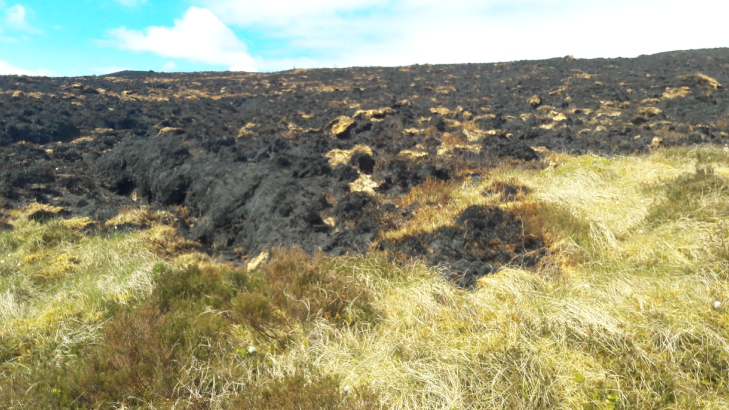Scottish Water has joined calls to raise awareness of wildfire risks to prevent damage and help protect the environment and water supplies.
The country’s public water services body is working with Forestry and Land Scotland and the Scottish Fire & Rescue Service to prevent potentially devastating outbreaks.
There have been at least 12 wildfires in the past five years on land owned and managed as water catchments covering thousands of hectares in different parts of the country, including South Ayrshire and the Isle of Skye.
About 70% of Scotland’s public drinking water supply has its source in approximately 525,000 hectares of peatland and moorland.
Wildfires can be very damaging to the natural environment, ecology and wildlife, such as nesting birds, voles, frogs and insects.
As well as the potential impact on wildlife habitats, wildfires can burn valuable carbon stores (trees and peatland), releasing greenhouse gases back into the atmosphere and losing their ability to capture carbon.
The damage to peatland is of particular concern given the long timeframes it takes to recover.
In addition, the de-stabilisation of peatlands near watercourses and ashes from wildfires which get into water sources such as reservoirs, can lead to changes in raw water quality.
Fire ashes, which are low volatile organic compounds, cause high phenols which pass through the water treatment process and react with chlorine to create taste and odour issues for customers.
Fires can also expose soil, increasing the risk of run-off into source waters, which can put pressure on the treatment process at water treatment works.
David Anderson, a Catchment Liaison Officer in Scottish Water’s Land Management Team, said: “We are seeing a dramatic increase in wildfires with the traditional wetter areas experiencing longer, drier periods than normal. And we are seeing wildfires in areas not normally associated with wildfires.
“Fires have the potential of setting peat on fire which can burn for long periods of time, possibly for a week or more. If this happens, it can destroy the carbon capture properties of a healthy bog or moorland.
“Soils are one of the biggest carbon reservoirs on earth, storing more of this element than the atmosphere and the above-ground biomass put together. Usually grass, heath and heather would grow back but there are areas where peat can burn and soils are lost.”
Martin Price, FLS’ Forest Management Officer, said: “The impact of wildfires can affect our forests, open habitats and our wildlife for months, years or even decades.
Catchment Liaison Officer, Scottish Water: “Please be extra vigilant and do not risk starting a wildfire such as through dropped cigarettes, or from use of portable stoves or barbeques. That extra bit of caution not only prevents wildfires, it also protects Scotland’s forests and avoids placing undue demands on our blue light services such that they can respond to other, potentially life-saving incidents.”
Deputy Assistant Chief Officer Bruce Farquharson, the Scottish Fire and Rescue Service’s Wildlife Lead, said: “We are seeing wildfire happening more frequently in late winter and early spring and having higher fire intensity towards the end of summer and in early autumn.
“Through partnership working, we are striving to ensure that Scotland’s natural resources and rural communities are protected from the devastating impact of wildfires, as well as preventing them from happening in the first place.
“Providing easy to understand and good quality information to those who work in, live in and visit the countryside on the risks that exist in relation to fire, how they can prevent fires from happening, and how to mitigate the impact of fire, is key to this work.”



